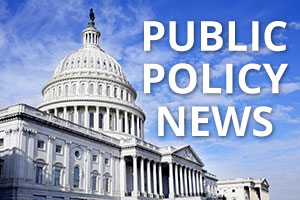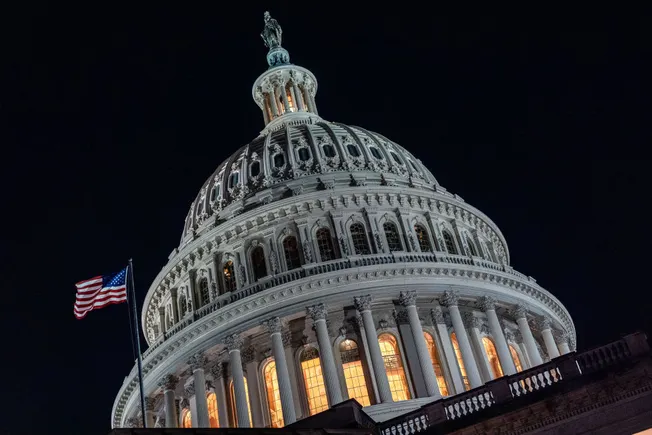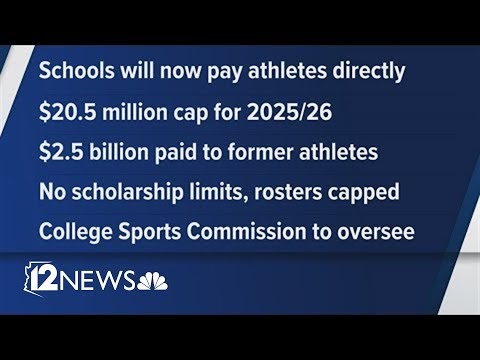Economic uncertainty—the kind that dominated headlines for the first half of 2025—makes long-term financial planning difficult. But nearly two in three college and university chief business officers say that uncertainty surrounding federal policy for higher education is hindering their ability to conduct even basic financial planning. That’s according to Inside Higher Ed’s forthcoming annual survey of CBOs with Hanover Research.
“Higher education has not faced this level of financial uncertainty in generations,” said Robert Kelchen, chair of educational leadership and policy studies at the University of Tennessee at Knoxville, who reviewed preliminary survey data.
While recent history offers one comparison—the early days of the pandemic, when uncertainty was similarly “off the charts”—the federal government at that time “quickly stepped in to provide support,” Kelchen continued. Today, by contrast, the federal government “is causing the uncertainty.”
According to the survey, federal policy uncertainty under the second Trump administration is moderately impacting basic financial planning at 49 percent of institutions represented, meaning that challenges have arisen but CBOs and their colleagues have managed to adapt. Another 14 percent of institutions are severely impacted, meaning basic financial planning has been extremely difficult, leading to major disruptions. This is consistent across sectors.
The survey was fielded in April and May, with CBOs from 169 institutions, public and private nonprofit, associate to doctoral degree–granting, responding. The full 2025 Survey of College and University Chief Business Officers will be released later this month. It includes additional findings on the second Trump administration’s impact on institutional finances so far, mergers and acquisitions, value and affordability, and more.
CBOs see federal student aid policy changes as a major risk, with 68 percent citing this as a top federal policy concern from a longer list of options. A distant second: research funding levels, cited by 24 percent of all CBOs. Public institution CBOs are relatively more concerned about research funding, at 36 percent versus 9 percent of private nonprofit peers.
Questions about the future of federal student aid come on top of last year’s Free Application for Federal Student Aid fiasco. And nearly four in 10 surveyed CBOs (38 percent) report having already experienced significant to severe disruptions related to that FAFSA rollout.
In Kelchen’s assessment, there’s no guarantee that the federal financial aid system will work as intended this fall—especially for colleges that require additional oversight before receiving funds, given recent mass layoffs at the U.S. Education Department. Congress also last week passed what he described as the largest set of changes to federal higher education policy in decades, via the Trump-backed One Big Beautiful Bill Act, with potential “downstream effects for state budgets due to cuts to federal benefits.”
Throw in cuts to federal research funding and big changes for international students, and colleges’ budgets “are highly uncertain,” Kelchen said.
Case in point: Michigan State University president Kevin Guskiewicz recently announced a plan to cut spending, including faculty and staff positions. He blamed expectations that the university will receive “less money from the federal government due to research cuts and restrictions on international enrollments, although the magnitude of those impacts is uncertain.” Also at play: increasing operating costs and state budget concerns.
In another example of uncertainty in action, Val Smith, president of Swarthmore College, announced in late May that the institution’s Board of Managers had been unable to carry out “one of its primary fiduciary responsibilities: approving the college’s operating budget,” at least as usual. Given the “confluence of uncertainties we currently face,” she said at the time, the board moved forward with an interim operating budget for the first three months of the new fiscal year. It plans to revisit and adopt a full operating budget in the fall, “when we expect to have more clarity.”
To Kelchen, interim budgets such as Swarthmore’s can make sense if revenues are “highly volatile.” So he said he wouldn’t be surprised if other institutions were quietly making similar moves.
In an additional expression of uncertainty, most surveyed CBOs describe the impact of the second Trump administration’s policies on their institution’s financial outlook—both current and over the next 12 months—as somewhat or very negative.
Most CBOs report minimal federal funding cuts under Trump so far. A handful do indicate that their funding has been reduced significantly, by more than 10 percent. An additional 11 percent report that funding has been reduced by 5 to 10 percent. And about as many aren’t sure. But the rest say funding has decreased by less than 5 percent or stayed consistent.
While the ultimate impact of federal policy changes remains to be seen—and will look different at different institutions—strategist Rebeka Mazzone advised frequent collaboration and communication between CBOs and other cabinet-level leaders, “so that you always know what’s happening on a more real-time basis.”
Also critical: forecasting, or “having a tool that allows you to constantly update the dollars you have so that you understand the impact.” Mazzone, founder of FuturED Finance, said that this real-time process is underused and very different from typical budgeting, in a which a yearlong spending plan is developed based on a particular moment in time. But the “smaller and the more cash-strapped the institution is, the more important the forecast becomes.”
Fancy software isn’t necessary, she said, as forecasting can happen on a spreadsheet. What matters is “capturing changes and overlaying them on the budget so that you understand where you’re going to end the year, and that helps you to more proactively manage the outcomes.”
Another important tool? Five-year projections. “If you have lower enrollment this year, that is going to affect you also for the next three years. If you have a higher discount rate this year, that is going to affect you also for the next three years.” So when institutions “suddenly” close, Mazzone said, “it’s not so sudden. They just weren’t using these tools to really understand how bad things were—and how quickly things were heading in the wrong direction.”
To Mazzone’s point, while federal policy uncertainty is challenging short-term planning, many institutions now making budget cuts have significant underlying issues.
What’s Kelchen’s advice for colleges and universities struggling with present uncertainty—including those navigating longer-term financial woes? Prepare multiple budget scenarios “ranging from something close to business as usual to the possibility of losing most federal funding.”
Institutions will get “some answers on what actual revenues look like as the start of a new academic year draws nearer, but this will take time,” he said. Those in stronger positions can “operate more at business as usual and absorb losses if needed. But if there is underlying weakness, colleges need to budget for the worst right now and hope for something better.”










